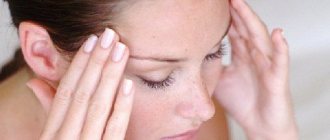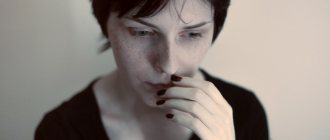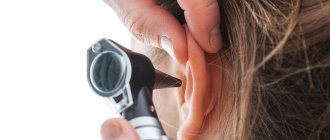Sometimes after a cup of coffee you feel sick. The concept of “bad” is different for everyone - you may feel weak, something similar to panic attacks, abdominal pain or indigestion, tachycardia, dizziness, etc. This can happen to people with chronic diseases as well as to those who appear to be healthy. Some people know about this peculiarity, while others suddenly feel ill after drinking coffee. In any case, you need to know what symptoms may be associated with the problem and what to do about them.
In what situations can you feel sick after drinking coffee?
Most often, things get worse from an overdose of coffee. At the same time, it is not at all necessary that you really drank a lot of it, especially since “a lot” is a relative concept, and we can only talk about the amount of caffeine that the body cannot handle at the moment. Here is just an approximate list of diseases and situations in which even one cup of coffee can make you feel bad:
- Vegetative-vascular dystonia;
- Chronic cardiovascular diseases;
- Tachycardia and arrhythmia;
- High blood pressure;
- Diseases of the gastrointestinal tract;
- Stress;
- State of lack of sleep;
- Illness or weakness of the body.
Most often, things get worse if you drink coffee on an empty stomach, especially if your body is weakened.
How to prevent nausea
Systematic deterioration of the condition after drinking espresso is a reason to consult a doctor. It is necessary to conduct a gastroenterological study, check how often the heart muscles contract, and take tests to determine the level of hormones.
If such problems occur in women, a pregnancy test should also be performed.
The following recommendations will help prevent the occurrence of such symptoms:
- purchase quality products;
- drink coffee with milk. This way it is possible to reduce the acidity level;
- drink a maximum of a couple of cups a day at intervals of 3-4 hours;
- prepare a drink that is not too strong;
- do not drink invigorating liquid on an empty stomach;
- drink at least a small amount of water.
Why can you feel sick after drinking coffee?
Caffeine mainly affects three main systems of the body: the brain, heart and blood vessels, as well as the stomach and intestines. Let's look at why it might be bad in each case.
Coffee hurts or makes you dizzy
Caffeine affects the blood vessels of the brain, narrowing them and blocking the production of adenosine, which dilates the blood vessels, maintaining them normal. If the vessels are compressed strongly and sharply, the head begins to feel dizzy from the lack of oxygen and blood, and a headache is felt.
Heart hurts, tachycardia from coffee
Caffeine stimulates the pituitary gland, which in turn releases hormones into the blood that affect the adrenal glands. The adrenal glands produce adrenaline, and therefore the pupils dilate, the pulse quickens, and tachycardia appears. The heart must pump blood faster, and all blood vessels are narrowed.
Nausea, diarrhea after coffee
Coffee, especially with grounds, actively irritates the walls of the gastrointestinal tract, stimulates the production of gastric juice and peristalsis. Symptoms such as nausea, stomach pain, abdominal pain may be felt, and quite often coffee can act as a laxative.
Systemic dizziness: symptoms
Symptoms of the pathological condition depend on the location of the lesions in the vestibular analyzer:
- When there are disturbances in the functioning of the peripheral part, vertigo has an acute onset. The patient has the illusion of rotation of all stationary objects around him. Such sensations often provoke severe nausea and vomiting. The condition persists for several hours, but not more than a day.
- If the functioning of the central department is impaired, the symptoms are smoothed out, but the sensations persist for several days and sometimes weeks. In this case, mild dizziness and nausea are often observed.
Other symptoms include the following false sensations:
- Body movements.
- Loss of support.
- Falling down or rocking.
- Movements of surrounding objects.
When dizziness occurs due to pathologies of the vestibular apparatus, additional symptoms may occur. This:
- Headache.
- Hearing impairment.
- Visual impairment.
- Speech problems.
Is coffee from a coffee shop bad or homemade?
Those who buy a regular glass of coffee from their favorite coffee shop are much less likely to suffer from poor health after drinking coffee. It uses a coffee machine and a standard recipe, meaning the caffeine content in your favorite latte will almost always be the same. At risk are lovers of natural coffee who prepare the drink themselves, in a Turkish coffee, and usually calculate the dosage only approximately.
- First, it could be a new variety that has more caffeine, or a blend with a higher Arabica content. The point is that in the usual dose, for example, a spoon per cup, you will get more caffeine, but the body is not used to this.
- Secondly, it is difficult to calculate the number of grams - they use different spoons at home, and the slide can be larger or smaller. And if you grind the beans before cooking, it is even more difficult to calculate the amount, and it turns out that there is more ground coffee in a Turk.
- Thirdly, a lot depends on how the drink was prepared. If it was simmered over low heat, and then stood in a pot for a while along with the grounds, the concentration of caffeine in it will be much higher than if you cook it relatively quickly and pour it through a filter or strain the grounds.
Even slightly exceeding the usual dosage of caffeine can cause a person to feel unwell. However, this feeling usually passes fairly quickly.
Bad from instant coffee
Instant coffee more often than natural coffee causes stomach pain, weakness, nausea, and sometimes you may feel cold sweat. And in this case, it’s not just about caffeine, although there is usually more of it, but also about all the chemical additives. The share of natural grain in soluble powder or granules is 15-20%, everything else is dyes, stabilizers, preservatives, volume powders, etc. The body reacts to such a “chemical attack” much stronger.
Forms of dizziness
Dizziness is classified into systemic and non-systemic. This division allows for a more accurate diagnosis, which means prescribing effective treatment.
Systemic dizziness, which in accordance with medical terminology is called vertigo, indicates the development of serious pathologies and is associated with damage to the vestibular analyzer. It is the organ of balance in the human body. Thanks to it, a person determines the position of his body in space and reacts correctly to any changes. Systemic dizziness is a dangerous sign. It is characterized by a pronounced clinical picture, which is often accompanied by other signs of damage to the nervous system.
Non-systemic dizziness refers to physiological factors and is not associated with dysfunction of the vestibular apparatus. Most often it occurs against the background of motion sickness syndrome or after prolonged rotation. It can also be triggered by psychogenic disorders, for example, stress, severe fatigue, hunger, etc. Non-systemic dizziness, as a rule, is a temporary phenomenon and does not pose a danger to human health.
What to do if you feel sick from coffee?
If every time you drink coffee you feel bad, you should either seriously reduce the dose, or try decaffeinated coffee, or maybe even give it up altogether. But usually it happens bad once, almost by accident, and in this case there is no need to panic: usually everything goes away in about 15-20 minutes. If you feel nauseous, you can try to get rid of the drink you drank; if not, there are ways to help your body return to normal faster:
- If you feel weakness, dizziness, tachycardia, pain in the head, it is advisable to sit down or lie down, ensure an influx of oxygen, perhaps raise your legs above your head so that oxygen flows to the brain. If it's freezing, you can wrap yourself up.
- If there is pain in the heart, increased excitability, pain in the temples, rapid pulse, fever, provide access to air and try to do a few physical exercises, just to speed up the metabolism and the caffeine is processed faster.
In any case, it is good to drink water, you can eat a banana, drink milk. Lemon water may help. Possibly sedatives for the heart and blood vessels.
Features of self-cleaning
There are several stages of cleansing the body after quitting smoking:
- 12 hours after the last cigarette smoked, respiratory function gradually begins to recover, bronchospasms disappear;
- within a day, the function of the circulatory system is normalized, normal oxygen levels are restored due to the absence of vascular spasms;
- After two days, the unpleasant odor from the mouth and skin disappears. Increased sweating may occur as the body strives to get rid of toxins;
- on the second or third day a wet cough with copious sputum may appear. This indicates that tars and toxins are being removed from the tissues of the respiratory system;
- within two weeks, gastrointestinal function improves. The sensitivity of intestinal receptors and the normal structure of the mucous membranes are restored;
- within a month, the normal level of white blood cells is restored;
- after two months, the structure of the epithelium and skin condition improve, and a healthy complexion returns.
A few months are enough to renew the blood, increase the vital volume of the lungs, reduce the risk of broncho-obstructive syndrome (BOS), and restore the walls of blood vessels. During this time, more oxygen begins to flow to the brain.
After six months, the liver is restored, and the symptoms of gastritis, characteristic of heavy smokers, disappear. Complete cleansing of the lungs takes about nine months. But it is important to understand that the structures of organs and tissues will never be the same as those of a person who has never smoked.
The risks of developing heart attacks, strokes and cancer are reduced after only one year. It will take at least a year to restore sexual function and high fertility (the ability to conceive).
Conclusions:
- Even a completely healthy person can feel ill after drinking coffee. If this happens once, there is nothing wrong with it.
- Coffee brewed in Turkish coffee may make you feel worse if you do not calculate the dosage or allow the drink to brew with grounds.
- Instant coffee makes you feel sick because it contains a lot of chemical additives that can cause an individual reaction.
- Most often, coffee makes you sick if the body is weakened, the person did not get enough sleep, or drank too much coffee.
- If you feel sick, drink water or milk to neutralize the caffeine.
Unsystematic dizziness: symptoms
Loss of balance is a characteristic sign of non-systemic dizziness. The illusion of movement of the body or objects in the environment does not arise in a pathological condition. Most often, imaginary dizziness is associated with a pre-fainting state.
Additionally, pale skin and loss of concentration are observed. Dizziness in this case is short-term. When you feel dizzy and unsteady, as well as a feeling of false “intoxication”, you need to quickly take a comfortable sitting or lying position. After this, the symptoms will disappear.
Very often this condition is provoked by negative external factors. The condition may occur, for example, after traveling in public transport or visiting a noisy public place. The reactions are associated with the individual characteristics of the human body.
Causes
It is important to understand why you feel dizzy: the reasons for this can be different, so only after a diagnosis has been established is the correct treatment prescribed.
The most common causes of vertigo in peripheral lesions:
- Benign paroxysmal positional vertigo, which occurs due to the deposition of crystals of calcium carbonate salts on the tissues of the inner ear canals
- Meniere's disease, which is associated with an increase in the amount of endolymph in the inner ear.
- Vestibular neuronitis, characterized by inflammation due to infection.
The causes of vertigo when the central part is affected are often associated with impaired arterial circulation in the vertebrobasilar system. In addition, the pathological condition can be caused by vestibular migraine, hemorrhages in the cerebellum, intoxication, traumatic brain injury, etc.
The main cause of non-systemic dizziness is presyncope. They can be caused by:
- A sharp drop in blood pressure. As a rule, this happens when the body position changes.
- Cardiac pathologies: arrhythmia, myocardial infarction, heart failure, etc.
- Anxiety states.
- Deviation from normal blood glucose levels.
- Taking medications of certain groups.
Dizziness may have different causes in women. The pathological condition often occurs during pregnancy, due to hormonal changes and increased stress.









